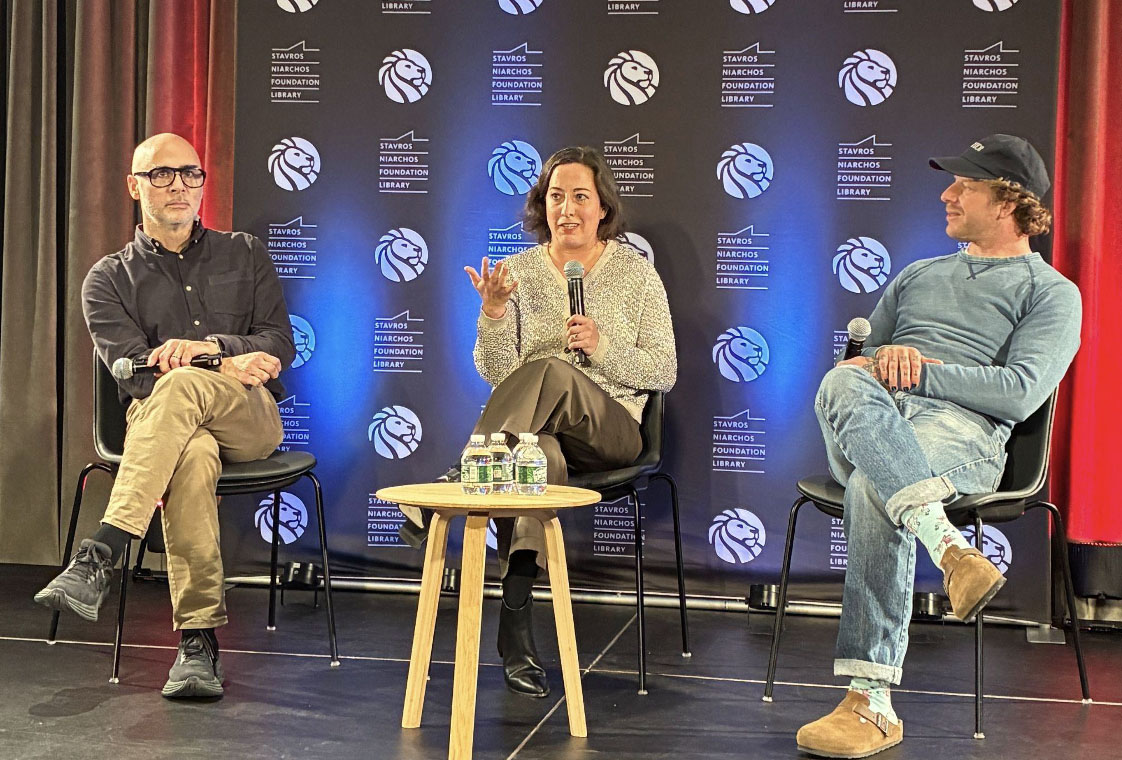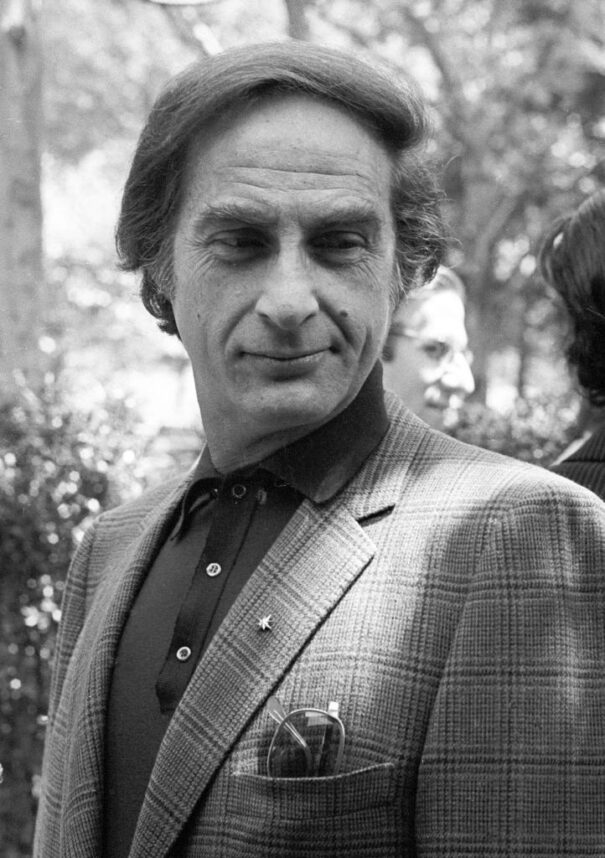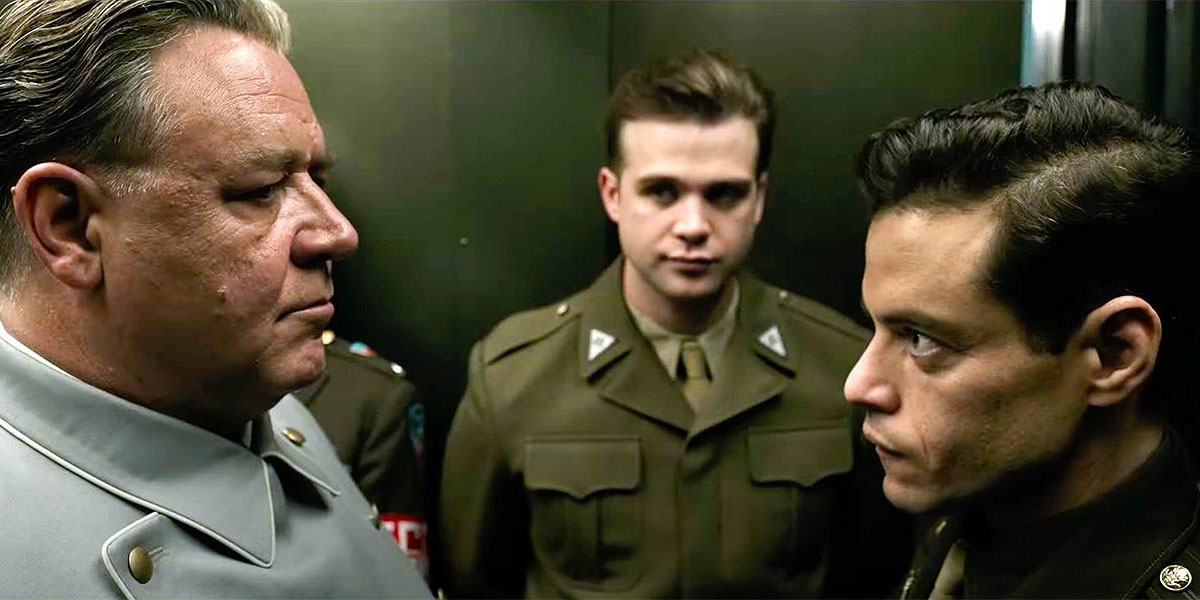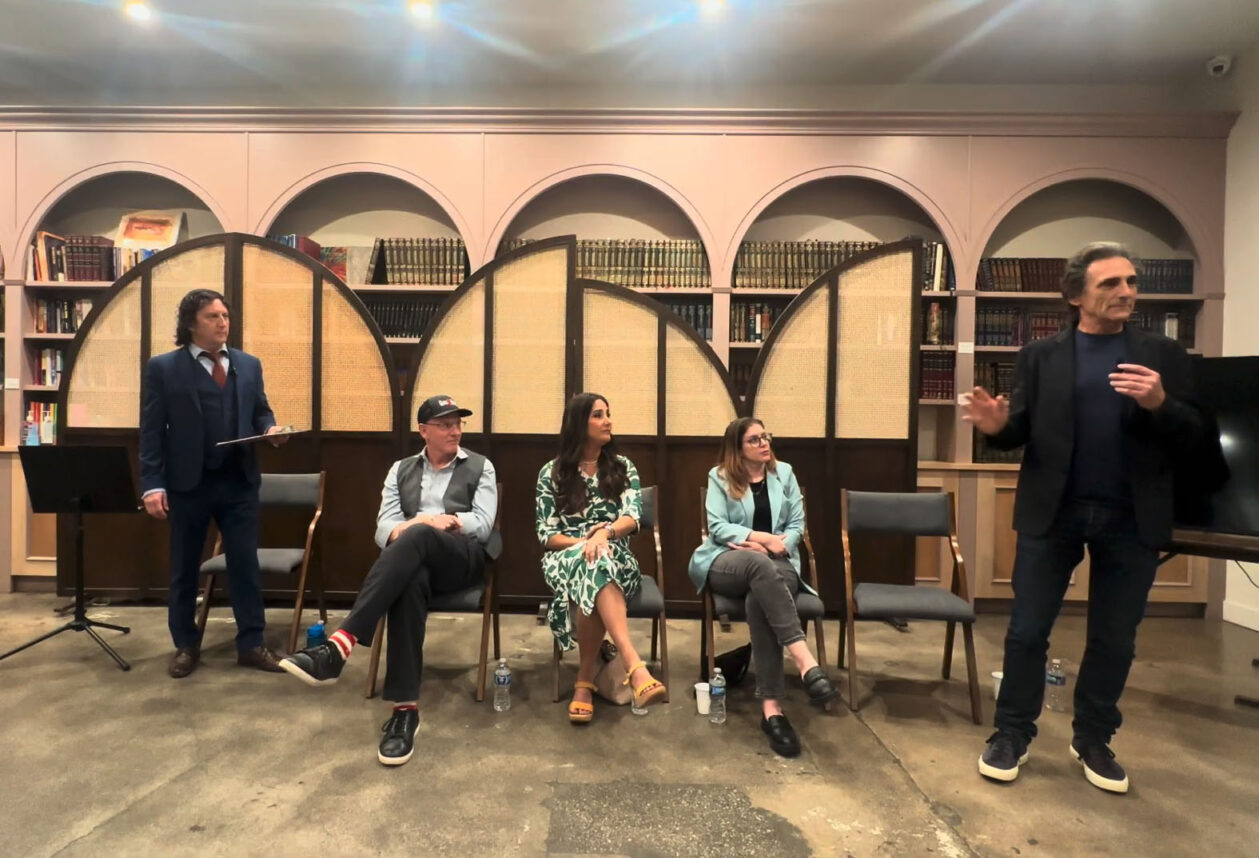Craig Zobel’s controversial new film “Compliance” revolves around a prank caller, impersonating a policeman, who manipulates employees at a fast food restaurant into sexually assaulting a co-worker—a plot based on dozens of jaw-dropping, real incidents that have occurred throughout the United States. But the film was initially inspired by an even more controversial look at human nature– the Milgram Experiment, a series of moral psychology tests conducted by Yale University’s Stanley Milgram beginning in 1961, as Nazi war criminal Adolf Eichmann was standing trial in Jerusalem.
“Milgram was interested in how an entire culture could virtually turn its back on something as enormous as the Holocaust,” Zobel, 35, said from his apartment in Brooklyn this week. “His curiosity wasn’t about the leadership – Hitler and so forth – but the people in the middle and bottom ranks. He was exploring people’s obedience to authority even if they morally disagreed with what they were doing.”
Milgram, in short, was probing the human capacity for compliance: During the tests, a subject was asked to administer an increasing series of electrical shocks to another person, who was actually an actor, for incorrectly answering a list of test questions. Before long, “the person would start to scream, and beg to stop the test, and that’s when the questioner would turn to the test administrator and say, ‘We should stop this now,’” said Zobel, who will next direct the sci-fi saga “Z For Zachariah’” starring Tobey Maguire. “And the scientist would always reply [something like] ‘I take full responsibility; don’t worry about him, your only responsibility is to keep administering this test, that’s your duty.’ What Milgram found was that 62 to 70 percent of people of all races and ages would eventually administer what they thought was a lethal amount of electricity – but under great distress. It wasn’t sadism. Yet they wound up continuing despite their what their consciences told them.”
As Zobel continued reading about the experiments, he came across a shocking series of cases that seemed to apply Milgram’s findings to real-life: In roughly 70 incidents over 10 years, a prank caller phoned a restaurant, pretending to be a policeman, and stated that one of the shop’s female employees had committed a theft. Alternating between strict authoritarian language and praise, he persuaded the managers to strip search the young woman, in many cases to spank her, and to subject her to escalating sexual humiliations, all in the name of following orders and “doing the right thing.” One infamous case took place in 2004 at a McDonalds in Kentucky, which along with the other incidents spurred the plot and tensions of “Compliance.”
Zobel’s drama – opening on Aug. 24 in Los Angeles – is set in a chicken restaurant in rural America, where Sandra (Ann Dowd), the harried middle manager, receives a call that her teenaged employee, Becky (Dreama Walker of “Don’t Trust the B——in Apartment 23”), has stolen money from a customer’s purse. [SPOILER ALERT] He instructs Sandra and others to detain Becky, to strip search her and subject her to assaults that culminate in rape. Their compliance every step of the way, despite their grave reservations, inspired the title of the film.
Here are further excerpts from my Aug. 14 interview with Zobel, which took place before his film screened along with a panel discussion moderated by Psychology Today editor-at-large Hara Estroff Manaro.
Q: Why were you so drawn to the Milgram experiments and the prank call incidents in preparation for your film?
A: My fascination ultimately was in the way that people do bad things oftentimes has more to do with them rationalizing that they’re not doing anything bad; that it’s not “them.” I think the worst things that happen come out of this ability to rationalize.
Almost all of the real prank call cases turned into sexual assaults; my immediate reaction upon reading about them was very much one of “I would never do this; it’s hard for me to believe this was even possible.” Then to find out that it had happened 70 times over a 10 year period was eye-opening. It seemed like a good way to discuss something we don’t think about very much, which is “What is your relationship with authority? Have you ever been in a situation where you’ve gone along or done something that later or maybe even in the moment you didn’t fully agree with, but felt like you had to [comply] because a boss or an authority figure of some sort was telling you to do so?” I’ve definitely done that before in small ways, but it’s unsettling for people to think about themselves in that way. We’d all like to cast ourselves as heroes in that kind of situation, but as the Milgram experiments showed, two-thirds of us are not going to do that. So the film was a good way for me to explore that [dilemma] and to reflect on whether there’s a way we can learn how to be more cautious.
Q: The dilemma reminds me of philosopher Hannah Arendt’s writings on the banality of evil, involving the Holocaust.
A: I will say that that did not escape me. It definitely has been on my mind that this is the way atrocities such as the Holocaust can happen. There’s also a quote from Voltaire that says those who can make you believe absurdities can make you commit atrocities, which I’ve been reflecting on recently. In the case of the film, the caller’s requests seem illogical and you’d think that people in their right mind would know that a police officer wouldn’t ask you to do those kinds of things. People who have challenged the movie have said, “Wouldn’t these people know that the police aren’t allowed to do this or that, don’t they watch ‘Law & Order?’” And I would say, “Yes, I’m sure they have. But they still didn’t challenge the authority.” I think we have a very complicated relationship with our authority figures; that dynamic is complex and in a way easy to manipulate. And if someone is manipulating us, things can go very wrong, which is what I was thinking about when making the movie.
Q: At a screening at the Sundance Film Festival, there were some audience members who loudly shouted that the film is exploitative and misogynistic.
A: That was a little dramatic, but the truth is that all the decisions I made about what to show in the film were made deliberately. The gender dynamic is another aspect of the story that is unfortunately true; when people abuse power it’s hard to avoid talking about gender. What tends to happen is that men use ‘power over,’ which is a term in feminist studies – and men can use authority in exploitative ways, even though in situations like this, we’re all at fault.
Q: You could have shot without nudity – why did you choose to go there?
A: I actually could have shot with a lot more nudity. I chose to put it in the film because I felt it added to the gravity of the story – it needed to land in a visceral way that something was happening that was not good or right. But the nudity in the film doesn’t read sexual or sexy to me; I felt there should be just enough that the extent of the [collaborators’] actions could be felt. One day when I’m bored I will count how much screen time is nudity in this film compared to other films or TV shows, where it’s questionable whether nudity is necessary for the story. The truth is I think people are uncomfortable with it in “Compliance” because I made it uncomfortable, which is good, ultimately. You shouldn’t be comfortable with it.
“Compliance” opens in Los Angeles on Aug. 24.
































